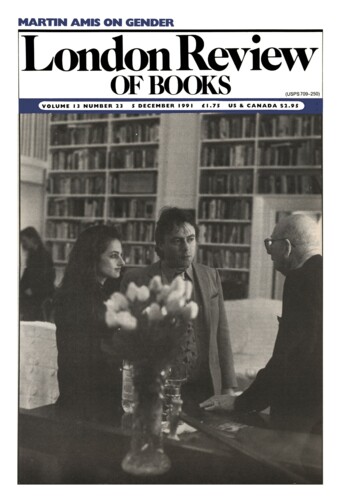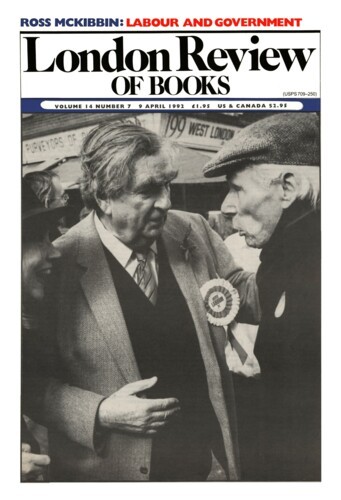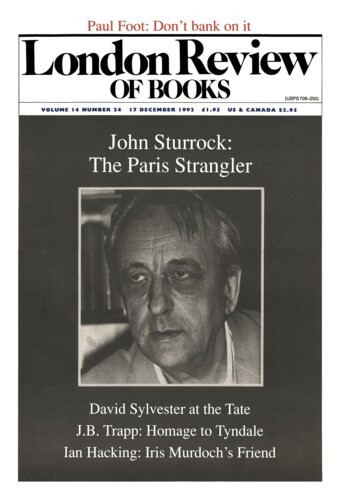Smocks
Rosemary Hill, 5 December 1991
The woods around London offered some curious sights in the 1840s. To the north in Epping Forest the infant William Morris could be seen riding out in a toy suit of armour, while down in Surrey, in the Tillingbourne Valley, little Gertrude Jekyll was learning to make gunpowder. In the event it was Morris who became the political revolutionary and Gertrude Jekyll who withdrew into a secluded world of romance in the house and garden she created at Munstead Wood. Yet such extremes of public and private life were essential elements in what might be called the Arts and Crafts temperament: a mixture of idealism, sentimental fantasy and Victorian middle-class confidence.




